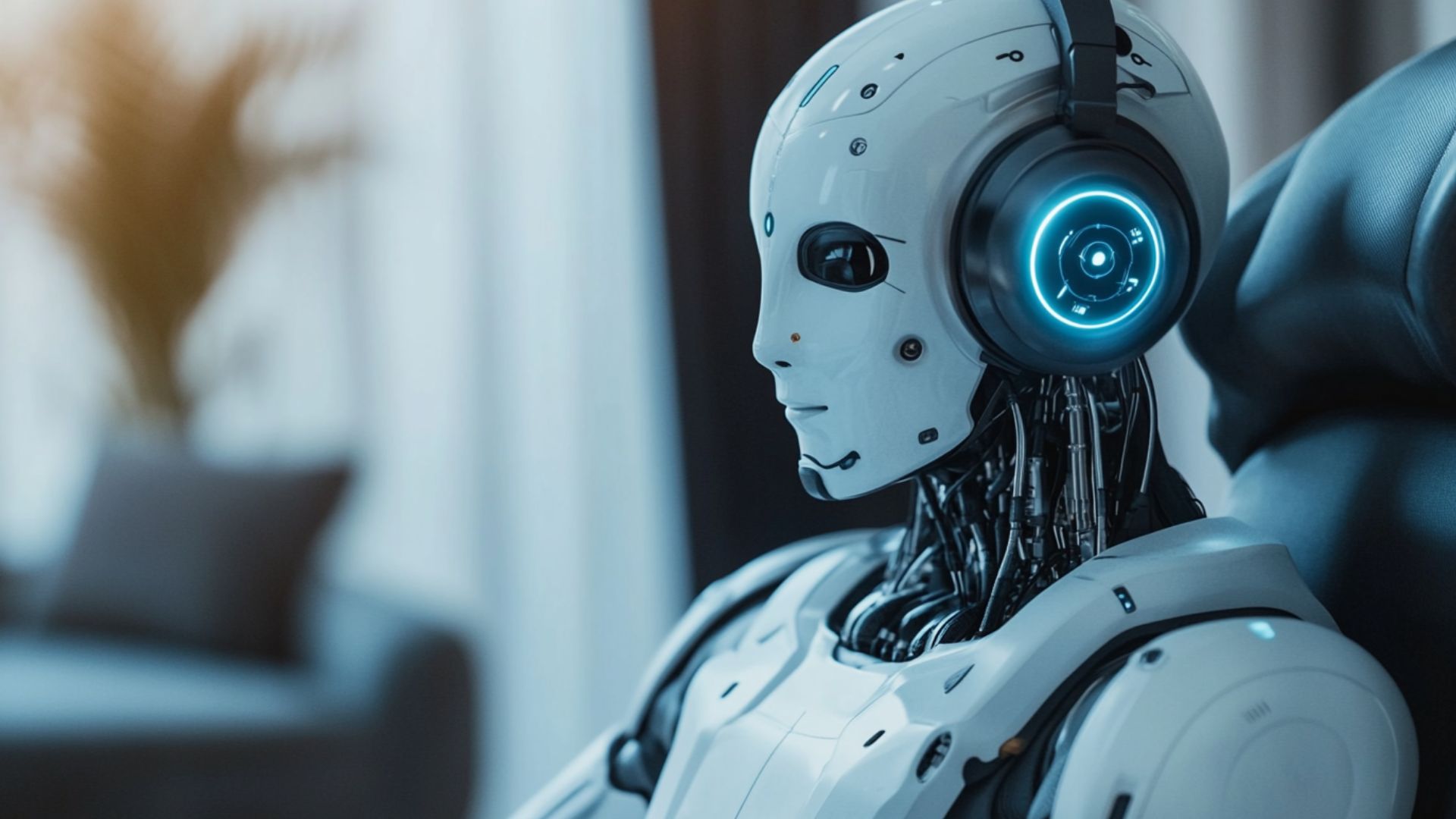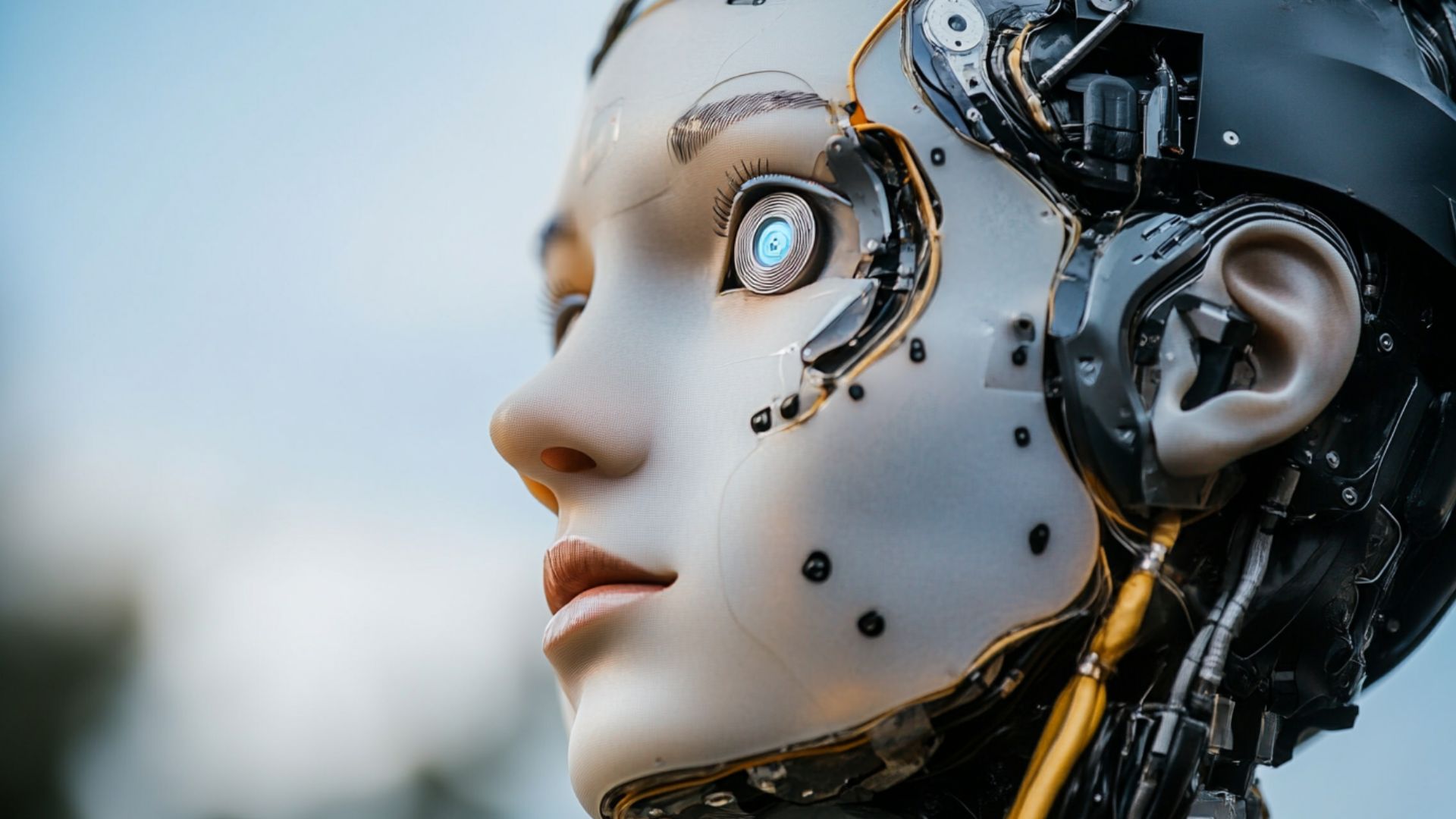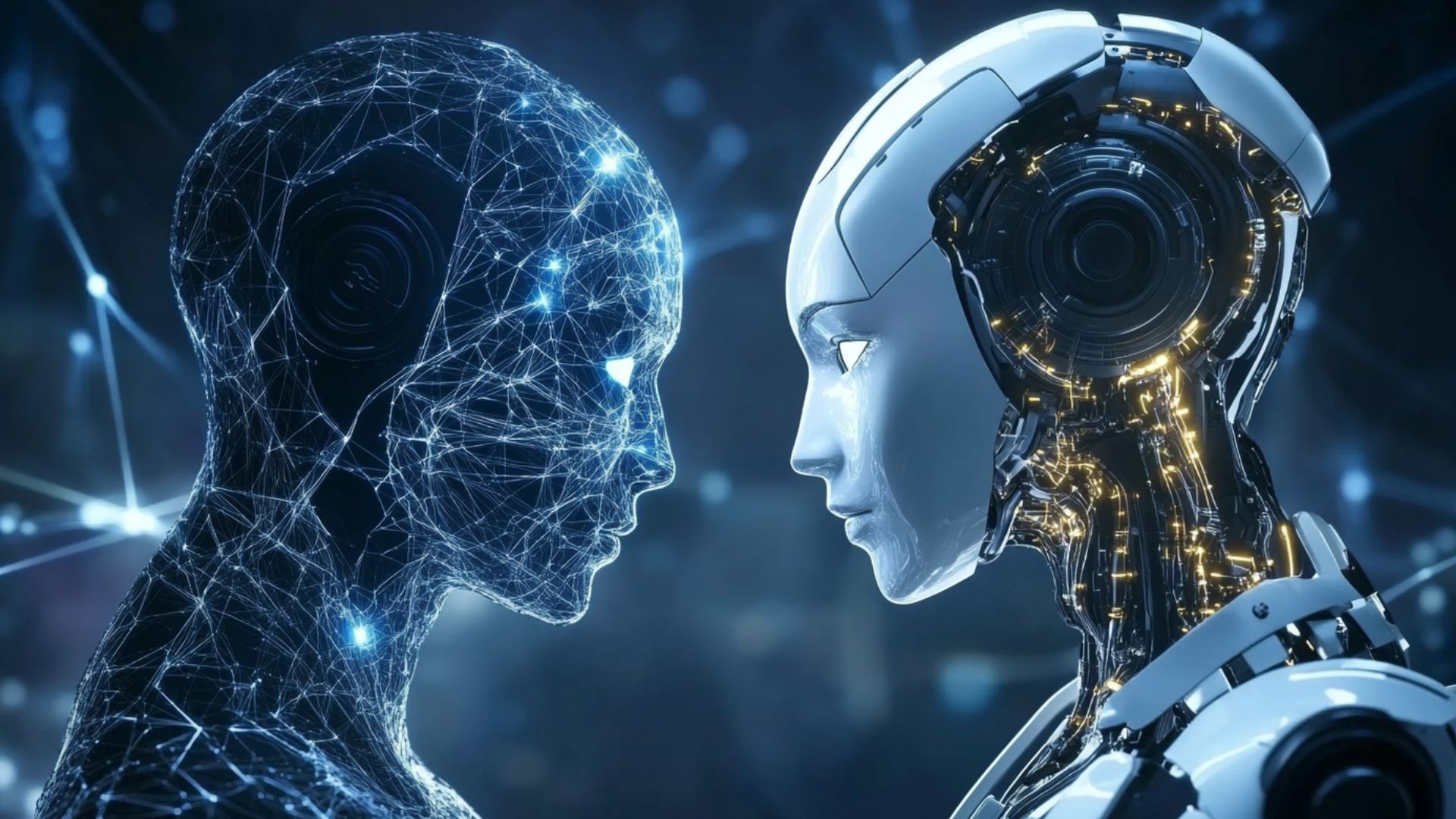AI and the Smart Warehouse: A Vision for the Future

MI is ushering in a new era in the upcoming logistics and furnish chain control area. It reforms storehouses into intelligent punch spaces. The integration of the latest hi-techs is revolutionizing traditional depot operations. They enhance output, fidelity, and feedback. This vision for the futurity of AI for warehouse automation entails a seamless fusion of several things. Among them are intelligent algorithms, robotics, and data analytics. They create a dynamic and interconnected ecosystem. Robotic-based systems do more than automate routine tasks. They become the cognitive brain of stock operations.
In addition, such systems precisely control complex processes. These include prophesying attendance and real-time inventory tracking. It comes before optimizing storehouse layouts and autonomous robots navigating aisles. AI is redefining the capabilities of such places. Our article explores the profound impact of MI on the evolution of intelligent depots. We delve into innovative apps and promising prospects. They herald a more efficient and responsive future in logistics and supply chain control.
The Rise of AI for Warehouse Automation
The growing trend of implementing AI in warehouse automation marks a significant leap. It is forward in the realm of logistics and equipment chain control. MI techs are increasingly becoming the backbone of modern storehouses. It offers a myriad of benefits that revolutionize traditional operations.
Key trends:
- Prophesying Attendance: It reduces downtime and ensures optimal equipment performance.
- Real-Time Inventory Management: It minimizes errors and optimizes stock levels.
- Autonomous Robotics: MI-driven robots expedite order execution processes and enhance operational punch.
- Dynamic Routing: AI algorithms ensure potent and timely movement within the storehouse.
Benefits of AI in depot operations:
- Increased Potency: AI sweeps processes, minimizes delays, and optimizes resource utilization.
- Enhanced Accuracy: Real-time info analytics and MI algorithms reduce errors. They are in charge of inventory control and order execution.
- Cost Savings: Predictive service and efficient resource allocation reduce operational costs.
- Adaptability: AI allows stocks to adapt swiftly to changing demands. It ensures flexibility in operations.
The rise of AI for warehouse automation signifies a reformative shift. It promises increased punch and a more agile and responsive approach.
AI in Warehouse Automation: Changing the Game
It changes the game through specific apps. Robotics powered by MI navigates stocks autonomously, expediting order fulfillment. Machine learning optimizes inventory control, adapting to demand fluctuations. Predictive analytics ensures efficient equipment operation with timely handling. These high-techs synergize to redefine depot processes, enhancing potency and responsiveness. The dynamic integration of robotics, ML, and analytics reshapes the AI in warehouse automation. It makes it more adaptive and efficient than ever before.
Warehouse Artificial Intelligence: Beyond Automation
Let's grub into the expansive realm of depot artificial intelligence. Its influence extends far beyond mere automation. MI revolutionizes storehouse environments by optimizing key areas. Among them are inventory control through real-time tracking and demand forecasting. In the realm of safety, predictive analytics aids in identifying potential hazards. MI enhances logistics by improving routing potency and facilitating adaptive decision-making. This integration underscores how warehouse artificial intelligence reforms these spaces into intelligent hubs. Also, it elevates potency, safety, and adaptability across diverse operational dimensions.
Artificial Intelligence in Warehouse Operations: Efficiency and Accuracy
The integration of AI in depot operations has ushered in a paradigm shift. It markedly improves both potency and accuracy across various facets.
Impact on potency:
- Dynamic Resource Allocation: AI optimizes resource allocation. It ensures efficient use of the workforce and machinery.
- Real-time Order Fulfillment: MI-driven systems expedite order processes, reducing turnaround times.
Enhancements in accuracy:
- Precision in Inventory Management: AI-powered systems provide real-time and accurate inventory tracking. They minimize errors and discrepancies.
- Predictive Analytics for Demand Forecasting: MI's predictive analytics anticipate demand. It aids in strategic inventory planning and reducing stockouts.
Case studies of artificial intelligence in the warehouse:
- Amazon Robotics: Amazon's AI-driven robotics significantly reduces order processing time. It enhances operational potency. Real-time inventory tracking minimizes errors in order fulfillment.
- DHL Robotics in Warehousing: DHL employs MI-powered robots for sorting and transportation. It streamlines stock processes. Automated systems do handy things. They reduce errors, ensuring precise order deliveries.
Incorporating artificial intelligence in warehouse operations demonstrates a paradigm shift. Here, precision and potency converge to redefine the standards of modern depot control.
Artificial Intelligence in Warehouse Management: A Strategic Approach
In depot management, the strategic role of MI is pivotal. AI-driven decision-making enhances supply chain resilience and responsiveness. It happens by analyzing vast datasets to predict trends and identify potential disruptions. This strategic approach ensures adaptive and informed decision-making. It positions storehouses to navigate dynamic challenges efficiently. Leveraging Artificial Intelligence warehouse management transcends routine operations. It is integral to fostering a resilient and responsive supply chain ecosystem.
Implementing AI in Warehouses: Challenges and Solutions
Executing MI in depots presents challenges. They include technology integration, workforce training, and ensuring data security. Overcoming these barriers requires a strategic approach. It contains comprehensive employee training programs. It is also about a phased implementation to ease the transition and robust cybersecurity measures. Emphasizing open communication and collaboration between technology experts and depot staff is essential. Artificial intelligence in warehouse management can be successfully integration. Also, it may optimize operations and enhance overall potency. It is in the rapidly evolving sector of supply chain control.
The Future of Warehouses: AI-Driven Innovation
Anticipating hereafter trends in depot control is pivotal. The integration of AI is set to redefine operations. Emerging modern techs can transform their areas in various ways:
- Robotic Collaboration: Expect increased collaboration between AI-driven robots and human workers. It optimizes tasks such as order picking and inventory management.
- Predictive Maintenance Evolution: Advanced MI algorithms will evolve. It predicts equipment failures more accurately and reduces downtime.
- Autonomous Vehicles: AI-driven autonomous vehicles will navigate warehouses efficiently. They streamline material handling and logistics.
- Real-Time Inventory Optimization: MI will optimize inventory levels based on real-time demand. It minimizes stockouts and excess inventory.
- Enhanced Analytics: AI-powered analytics will provide deeper insights into storehouse performance. It enables more informed and data-driven decision-making.
- Augmented Reality Integration: MI and augmented reality will converge. It provides depot workers with real-time information. Also, such integration enhances their capabilities in tasks like picking and packing.
The seamless integration of artificial intelligence warehouse operations promises a future. Here, potency, adaptability, and innovation converge to shape the next generation of stocks.
Artificial Intelligence Warehouse Management: The Next Steps
MI continues to revolutionize depot control. The following steps involve deepening integration with advanced techs. They include IoT and machine learning. Continuous innovation is crucial, ensuring MI apps evolve alongside emerging industry needs. Prioritizing adaptability allows warehouse control systems to harness the full potential of AI. Also, it helps to create a dynamic environment. That optimizes processes and enhances decision-making. It stays responsive to the evolving demands of the modern supply chain sector. The trip of artificial intelligence in warehouse management has a strategic evolution.
Building the Smart Warehouse: A Blueprint for the Future
Constructing an intelligent depot powered by AI demands a holistic blueprint. Among its crucial aspects are the following:
- Technology Integration: Implement MI systems for predictive analytics, real-time tracking, and automated processes. Integrate IoT devices for seamless data flow.
- Workforce Training: Train staff on AI systems and collaborative technologies. Cultivate an adaptable culture for continuous learning.
- Process Optimization: Align workflows with AI capabilities for streamlined operations. Develop protocols for dynamic inventory and demand fluctuations.
- Cybersecurity Measures: Strengthen cybersecurity to safeguard AI systems and data.
- Collaborative Environment: Foster collaboration between AI and human workers. Encourage open communication for refined processes.
- Continuous Improvement: Establish feedback mechanisms for ongoing enhancement. Stay updated on technological advancements for future-proofing.
This integrated approach ensures the synergy of technology, people, and processes. It lays a foundation for an adaptive and efficient brilliant depot.
Conclusion
The Artificial Intelligence warehouse management unveils a visionary future. Here, high-tech, novelty, and human collaboration redefine supply chain dynamics. This reformative journey promises heightened potency, adaptive processes, and enhanced decision-making. MI continues to evolve. So, the vision for intelligent warehouses signifies a technological advancement. A paradigm shift propels them into a new era of agility and responsiveness. It is pivotal in the upcoming sphere of coordination.
FAQ
Human collaboration remains essential. AI collaborates with human workers. It capitalizes on their cognitive abilities for enhanced productivity and problem-solving.
Yes, AI enables adaptive processes by analyzing data, predicting trends, and optimizing workflows. Its base is a changing operational requirement.
AI-driven innovations in smart warehouses revolutionize supply chain dynamics. They do it by providing agility, responsiveness, and improved decision-making capabilities.


